Worldschooling Hasn't Worked the Way I Had Hoped
But it has still provided invaluable learning
Despite knowing that worldschooling wasn’t our long-term plan, I still had hopes for how our year would go from a learning perspective, and I secretly hoped the girls would love it. The freedom for them to move at their own pace and explore topics in non-traditional ways that were interesting to them sounded amazing, at least to me. In hindsight, I’m not sure how on board the girls were. It’s not because they’re against learning, but they are motivated extrinsically more than intrinsically. Whether that’s because of their age or their personalities, I’m not sure, but we learned that they need assignments and deadlines implemented by someone other than a parent and they want peers to learn with in person, not online and definitely not in a synchronous format online.
So we tried our best to find a balance between traditional schooling and unschooling, with a focus on experiential learning. After all, that’s really one of the benefits of worldschooling. We went to historical sites and some museums, took cooking classes and went to local markets, and tried to master the metric system in real life. The girls did Spanish lessons through Duolingo, with me, and in class in Buenos Aires. We noticed many differences in architecture, heard so many different languages, observed cultural celebrations and traditions, and explored a bazillion parks. N did lots of drawing and some painting and even taught herself to sew. We observed and discussed differences in infrastructure and economic systems (everything from what types of stores and products are available – and why – to how people pay for things) and experienced the effects of vastly different climates.
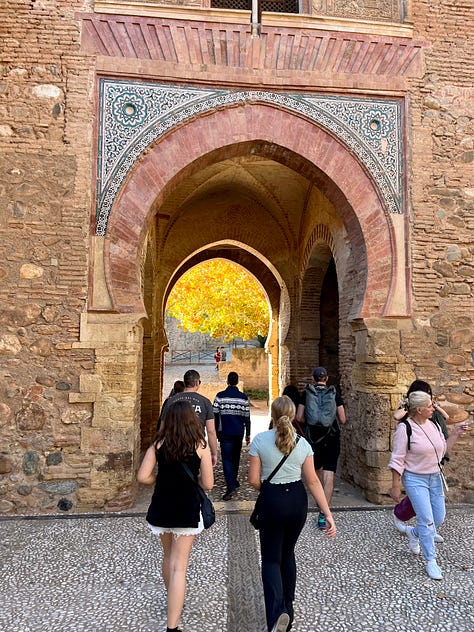
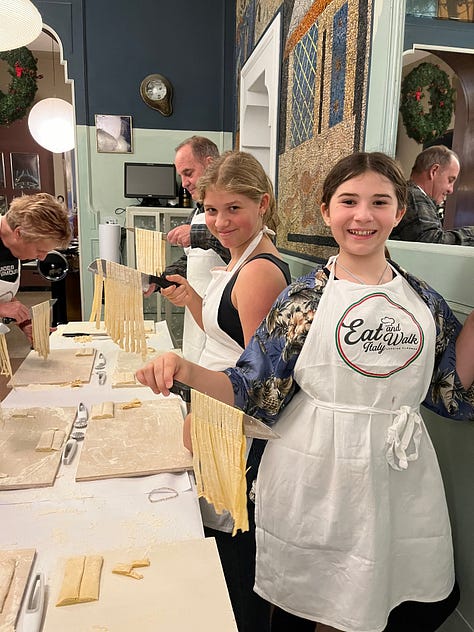
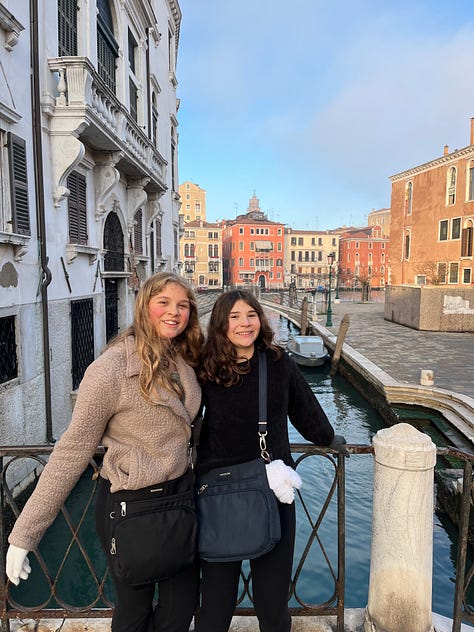
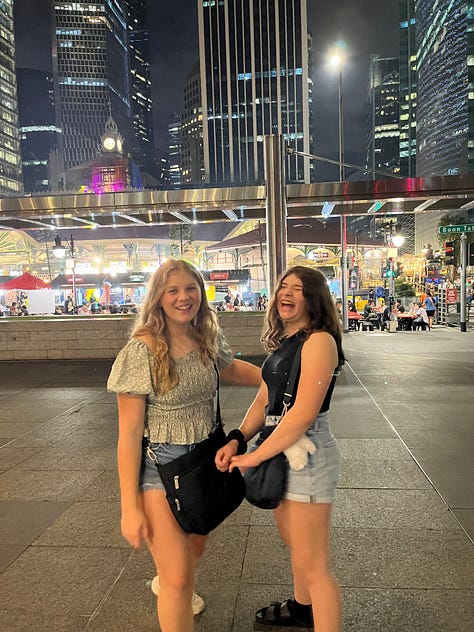
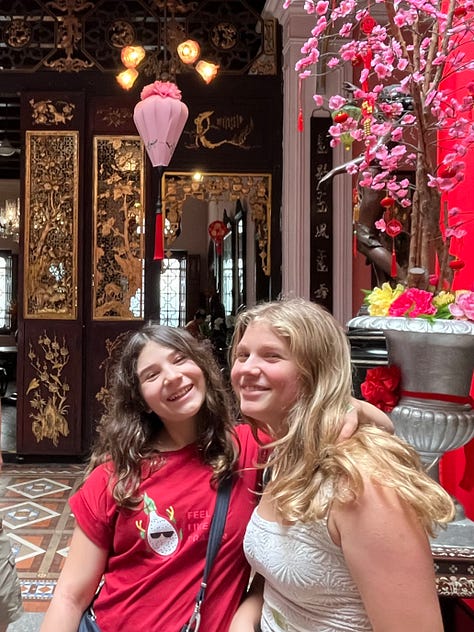
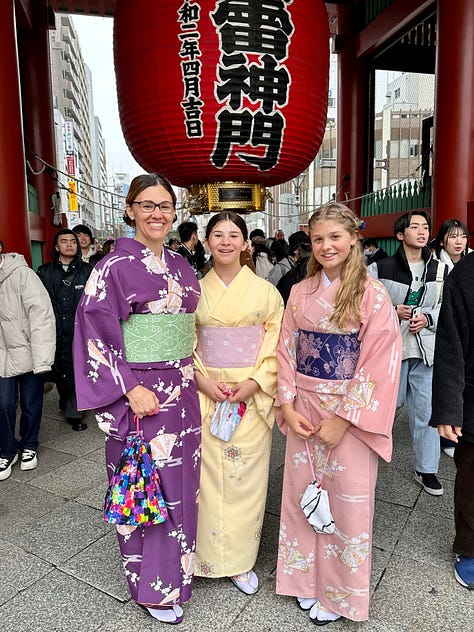
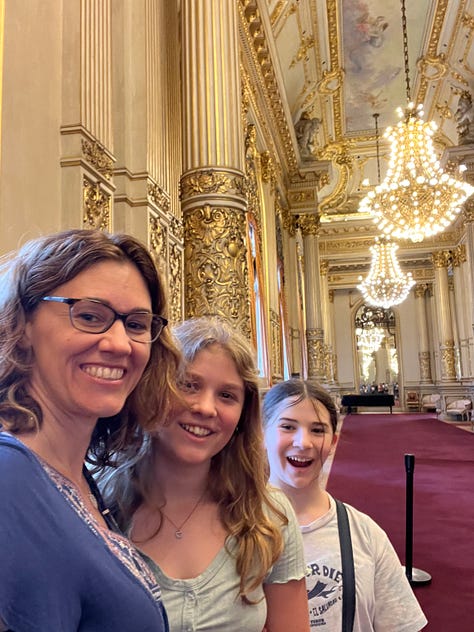
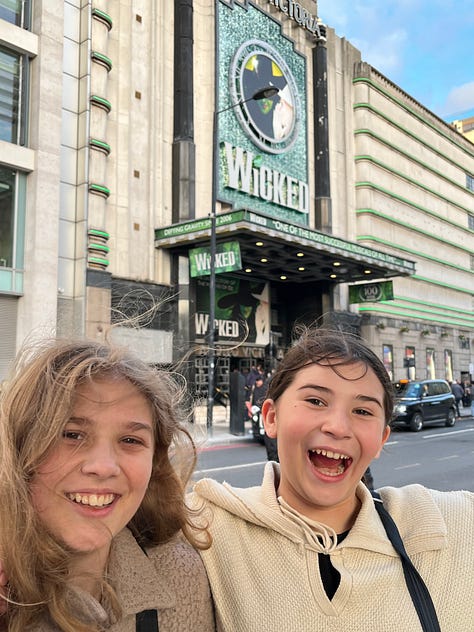
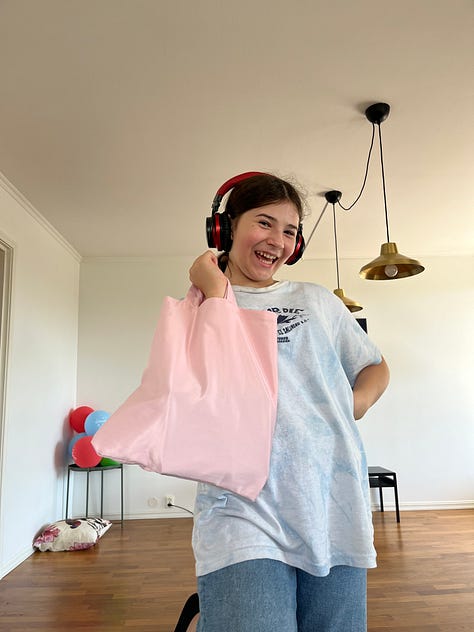
We incorporated PE in a variety of ways (swimming, indoor rock climbing, stand-up paddle boarding, yoga, biking, kayaking, peddle boating, and ice and roller skating). And, of course, we’ve navigated everything that international travel brings, which is full of life skills, including: packing; navigating planes, trains, and automobiles; trying all kinds of new foods; using many different currencies; asking for help in various countries; dealing with stressful situations (some of them self-imposed), and so much more.
Experiential learning aside, the girls have done a fair amount of math online, moving ahead of where they’d otherwise be since they can go at their own pace, though it’s often felt uninspiring to them. We’ve tried to get them to read. I started off asking them to read historical fiction about the places we were traveling to but it didn’t take, so I told them just to read something, anything. That worked better but has still been hard, especially for S, who doesn’t enjoy reading. I suggested journaling as a way for the girls to do some writing and tried giving them some writing prompts, but they mostly pushed back against it. So we finally outsourced the reading and writing. The experience was mostly good, as they had teachers they’d listen to, plus flexibility as to when they do their work each week.
It's funny because as much as they’ve both missed friends, neither has wanted to invest time in meeting other kids online or in person. They said it felt forced/artificial and didn't see the point, as they weren't likely going to see those kids again and couldn't realistically build and maintain a friendship with them.
That was a head scratcher to me, as I've made tons of online friendships through the years and absolutely see the benefit (in fact, I've made many as we've traveled this year and they've been so helpful), but I can see how at the girls' ages it's not what they want. For one, they’re not on social media so don’t have a regular way to interact online other than texting. And two, they crave authentic relationships with people they click with, who share common interests, and with whom they can laugh and be silly in person. They want to actually roll their eyes and laugh out loud together, not do it via emojis across time zones. And they want to build friendships over time with kids their same age through ongoing shared experiences. One day they'll have friends of many ages and the years of difference between them won't matter, but right now they do; they need to share the moments of their growing up years with those who are growing up alongside them.
My biggest takeaway is that what you want for your kids from a schooling (and living) perspective and what they want and need might be different. And what you can influence will depend in part on their age, motivation, and openness to change. It’ll be important to experiment and not stick to the original vision if it’s not working.
Still, it’s hard not to look around at other worldschooling families who are loving this lifestyle and wonder: “Why is it working for them and not for us?” But traditional school was working for the girls. The phrase “if it ain’t broke, don’t fix it” comes to mind. Don’t get me wrong: Much is broken with public schools in the US, but we had always lived in good school districts and the traditional structure, much as I don’t see it necessarily setting kids up well for the future, was working for the girls. They were thriving despite disliking their homework loads. They had lovely friendships and good teachers and felt a sense of belonging. That alone was gold.
As we’ve traveled, I’ve observed why and how different families worldschool. Many choose the lifestyle because they are opting out, both of the 9-5 work life and the traditional school system. On the education front, they want more than the set menu of subjects and curriculum taught by a teacher within the walls of a classroom. They’re also tired of all the standardized testing (so much testing). And for some, their kids weren’t thriving in mainstream settings, for a variety of reasons. And while a lot of that resonated for us—enough to try the lifestyle—we aren’t screaming from the rooftops that it is the absolute best way to live and raise kids.
I truly think it can be, for some. And I love seeing worldschooling families who are thriving. I hope they continue to do so! It seems to work best for families who are already homeschooling, had their kids in alternative education environments prior to setting out to worldschool, or suspected their kids would do better in a non-traditional setting. The younger the kids are, they more easily they adapt. The tween/teen years in particular seem to be tricky—and a challenging time to start this lifestyle, especially with trying to find friends and community. The key overall seems to be to start sooner and travel slowly so kids can join local groups and activities or finding other families to travel with in community.
So where does this leave us? Since we don’t want to go back to the US at the moment, we’ve had to do a lot of research on what options are available. And for now, international school is the route that seems it will give the girls what they’re looking for. Unfortunately, it’s very expensive and puts them right back into a traditional system that’s built more for the past than the future. But we need to meet the girls where they are. And, absent other options that perhaps we haven’t come across, this feels like the best next step for now.
The girls feel good about this decision; it was actually theirs to make. They’re looking forward to familiarity, consistency, and making friends. They know how to do school and they’ll jump in and do just fine. They have the academic chops to succeed; they’ve proven this for years. What I hope this year has done for them is plant a seed that school isn’t the only way to learn and that traditional markers of success in school are incomplete and insufficient.
The world is rapidly changing and the traditional education system will have to shift if it’s to stay relevant. The girls may not be able to see this yet, and how much it will change before the girls graduate from high school remains to be seen. But by the time they are in university, assuming they go, I suspect many things will be different. And I hope this glimpse of learning beyond the four walls that they’ve had this year will remind them that they can pursue anything they’re interested in if they’re motivated and have the right support network in which to thrive.
I recently asked Perplexity: In what ways do teenagers who travel the world learn organically from their travels? I'd say the summary it returned fits well: "Long-term travel provides teenagers with an unparalleled education that transcends traditional classroom learning, equipping them with invaluable life skills, cultural awareness, and a broader perspective on the world."
What, if anything, have you experimented with in regards to your kids’ learning and what have you all learned as a result?


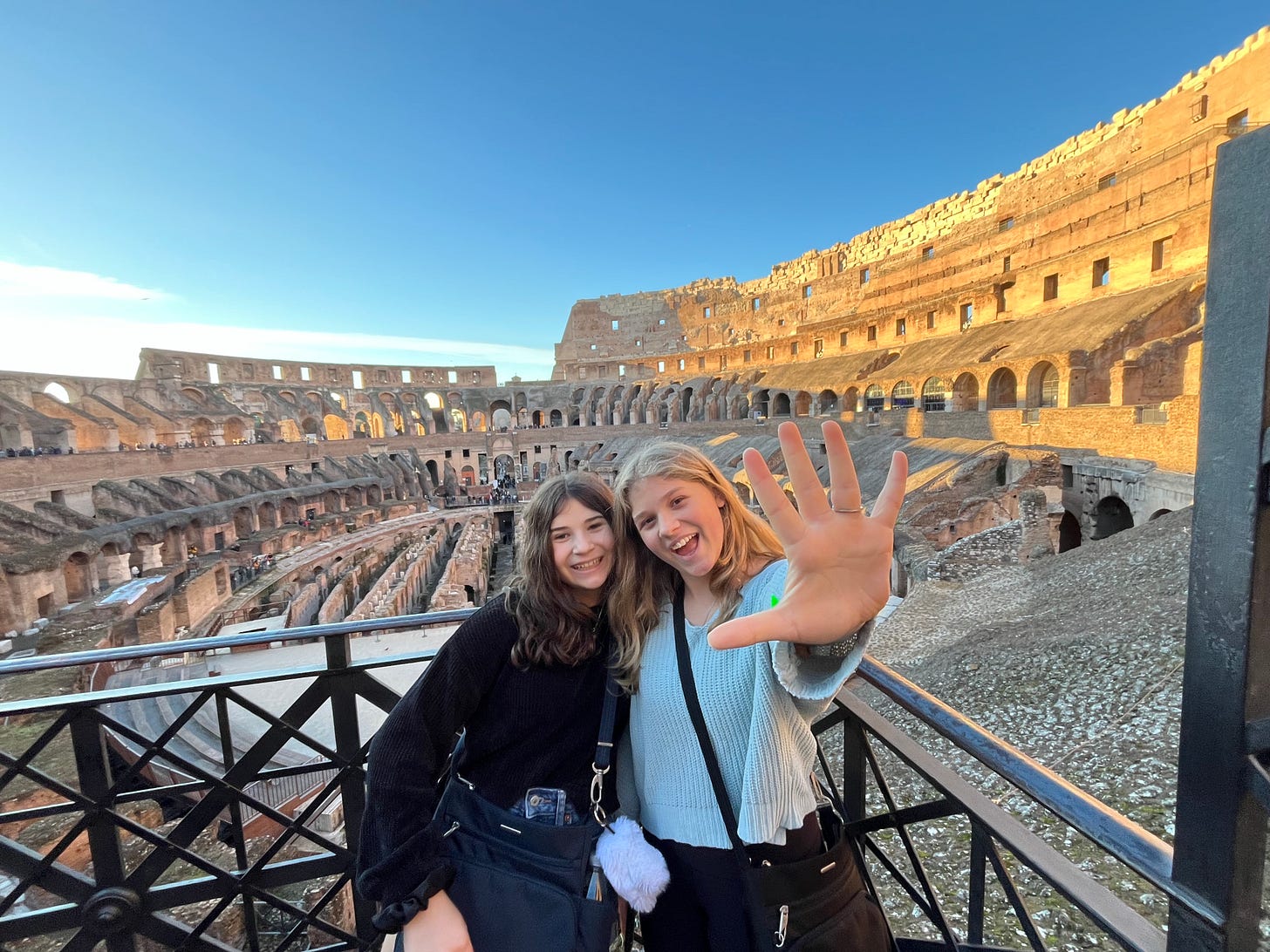
We only road-schooled for 5 wks but quickly realized that the kids needed that consistency, peers and sense of belonging. I would love to give mine the international experiences you’ve given yours. That is truly priceless. I’m glad you’ve settled on an international school to hopefully bridge that gap. Where?!?!
Excellent observations and insights! Thank you for sharing!